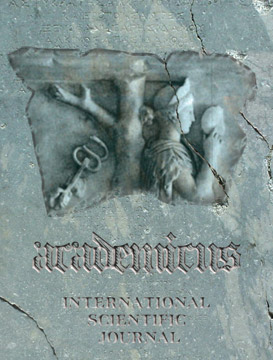Title:
Author(s):
Abstract:
Nicholas Rescher writes that “objectivity is not something we infer from the data; it is something we must presuppose. It is something that we postulate or presume from the very outset of our dealings with people’s claims about the world’s facts”. Such definition is just the opposite of objectivity conceived of in classical terms, but it cannot be equated with an idealistic viewpoint according to which objectivity is something that our mind simply creates in the process of reflection. It is, rather, a sort of cross-product of the encounter between our mind-shaped capacities, and a surrounding reality made up of things that are real in the usual meaning of the term. Science itself gives us some crucial insights in this direction, since it shows that we see, say, tables and trees in a certain way which, however, does not match the image that scientific instruments are able to attain. Does this mean that our commonsense view of the world is totally wrong and that nature deceives us? This is not the case. The difference between the commonsense and the scientific image of the world is explainable by the fact that we are evolutionary creatures. Nature has simply endowed human beings with tools and capacities that enable them to survive in an environment which - at least in remote eras - was largely hostile. Our way of seeing tables and trees is what is requested for carrying on a successful fight for the survival of the species: nothing more - and nothing less - is needed for achieving this fundamental goal. Turning once again to the problem of ontological objectivity, the picture has now gained both strength and clarity. If we recall that human endeavors, although occurring in a largely autonomous social and linguistic world, are nevertheless limited by the constraints that natural reality forces upon us, we begin to understand that the social-linguistic world itself is not a boat freely floating without directions. If the boat is there, it means that an explanation of its presence is likely to be obtained if only we are patient enough to look for it. Some kind of hand must be on the wheel, giving the boat indications on Contrary to other pragmatist-flavored positions popular nowadays, this approach maintains that universality has a fundamental and unavoidable function in our rational endeavors. This is due to the fact that “presupposition” and “hypothetical reasoning” are key ingredients of our very capacity to rationalize the world in which we live. Indeed, there can be no rationality without universality.
Keywords:
Objectivity; Pragmatism; Realism; Idealism; World; Rationality
Full Text PDF:
References:
View complete reference list, click
here
Digital Object Identifier DOI:
The article's content ©Academicus™ Pragmatic Objectivity
by
Prof.Dr. Michele Marsonet
is licensed under a Creative Commons
Attribution-NonCommercial 4.0 International License.
Presented:
July 2013
Included for Publishing:
December 2013
Published:
January 2014,
Volume 5,
Issue 9
Academicus International Scientific Journal is an Open Access Journal. This means that all content is freely available without charge to the user or his/her institution. Users are allowed to read, download, print, search, or link to the full texts of the articles in this journal without asking prior permission from the publisher or the author. This is in accordance with the BOAI definition of open access. Users are obliged to cite the source (Academicus International Scientific Journal) and the author, according to the international citation standards.
To learn more about the OA Policy followed by Academicus ISJ, read Journal Regulations
Academicus
International Scientific Journal
pISSN 2079-3715
eISSN 2309-1088
Address:
Sheshi i Flamurit, Rruga Muze
Al-9401 Vlorë, Albania
Tel: +355 68 60 60 555
info@academicus.edu.al
https://academicus.edu.al



 Scholar
Scholar
 Crossref
Crossref
